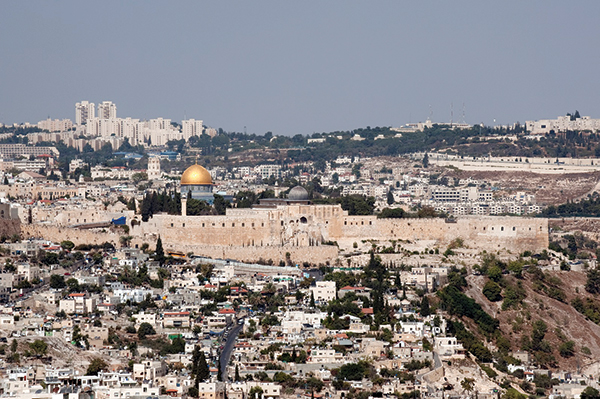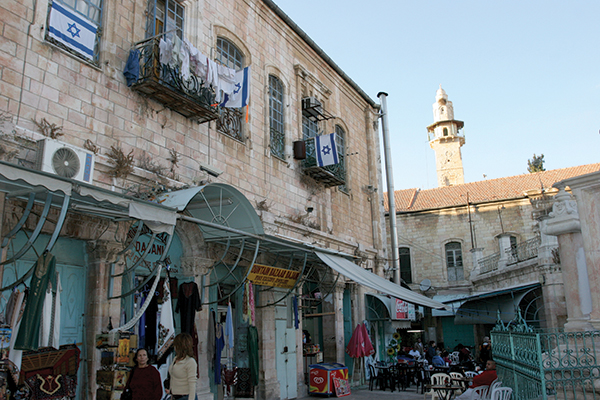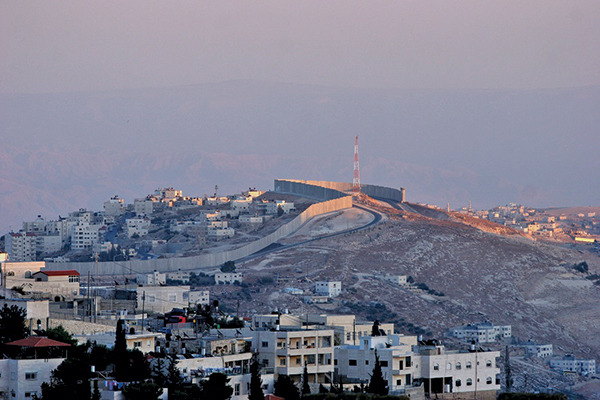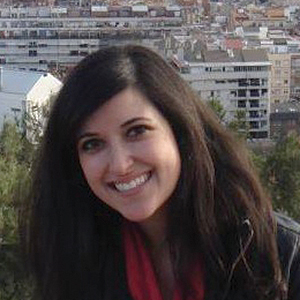
Though never far out of sight, Jerusalem was notably at the center of much of the world’s focus this year, as tensions mounted throughout the occupied city. Following the death of 16-year-old Mohammed Abu Khdeir this past July and a fierce reaction from Palestinian Jerusalemites, many pondered whether or not a third Intifada was brewing in the streets of Shu’fat, Silwan, Wadi al-Joz and elsewhere. Israel’s reaction to the growing popular resistance was in turn swift and forceful. Arrest rates, home detentions, and other punitive measures have skyrocketed in an effort to quell the rise in violence. And while there has been increased attention paid to this crackdown, little has been dedicated to the underlying psychosocial impact of the occupation force’s growing repression in East Jerusalem.
Historically, Israel has worked to undermine the collective identity of Palestinian Jerusalemites since it first occupied the city in 1967. Over the past four decades, the state has implemented a complex network of measures that comprehensively work to minimize Palestinian presence in Jerusalem. These have included building-permit restrictions and home demolitions, the expansion of illegal Jewish settlements, discriminatory provision of municipal services, the imposition of Israeli curriculum in Palestinian schools, obstacles to child registration, and an eleven-year ban on family unification. Because of these and other oppressive policies, many Palestinian families find life in East Jerusalem to be so desperate that they feel compelled to leave the city and seek better conditions in other cities. But even this decision comes at a grave cost, as Palestinian Jerusalemites come under threat of losing their permanent residence status – and with it, the right to live and work in Jerusalem – should they live outside, including elsewhere in the West Bank, for seven or more years.
Palestinian Jerusalemites, then, live with a persistent, unyielding anxiety over being displaced. This worry is palpable throughout the city, as nearly every household has been impacted by this threat in some manner. Jerusalemites are obligated to consider the risk of losing their residence status when applying to universities or for jobs, when enrolling their children in school, and even when choosing a spouse. It is often an alienating process that further fragments them from the rest of the Palestinian community.
This unease is only exacerbated by the plethora of injustices that regularly occur inside the city. For example, in a 2012 study on the phenomenon of self-home demolitions in Jerusalem conducted by the Palestinian Counseling Center (PCC), findings suggested that the trauma of being forcibly transferred extends to all family members and remains long after the initial displacement. Numerous families additionally reported feeling disassociated from the national identity, as well as social abandonment and helplessness as a result. Jerusalemite children are likewise particularly vulnerable to developing long-term psychological struggles. This has led to notably high levels of school dropout, drug abuse, and child labor among Palestinian youth in Jerusalem.
Thus, Palestinian Jerusalemites are a uniquely traumatized community – living under extremely oppressive conditions and concurrently threatened with the revocation of the right to their homeland should they seek to escape said conditions. It is for this reason that many proclaim that simply remaining in Jerusalem is in itself an act of resistance against Israel’s occupation.

As acts of resistance have escalated in Jerusalem over the past six months, so too has Israel’s clampdown on the city’s Palestinian population. The occupying power has dramatically increased its police presence across the area, with forces conducting stop-and-search procedures, home raids, property confiscations, and detainments at some of the highest rates since the second Intifada. The Shin Bet, police force, and military have additionally agreed to collectively establish a joint intelligence wing dedicated specifically to locating “terrorists” in East Jerusalem. Perhaps most remarkable is the new trend in punitive measures being employed by Israel, including home demolitions and residency revocations, against those convicted of terrorism as well as against their family members. This motion has culminated in a tabled bill in the Knesset that outlines eight steps to deter terrorist activity. The bill, which focuses on collective punishment tactics, includes the deportation (to Gaza or another undetermined location) of any family member who even expresses support for a relative convicted of terrorist activity.
And while Israel contends that these ramped-up efforts are being used on the basis of security, it is blatantly evident that the these new measures – just as those that preceded them – are serving the occupation’s broader aim to incite fear and apathy into Palestinian Jerusalemites. The PCC’s executive director, Rana Nashashibi, elaborated on this method of psychological torture over a decade ago, stating:
the weaponry of this warfare is not machine guns, tanks, and apache helicopters but methodical humiliation and demoralization which targets the Palestinian people’s psyche, emotionally and cognitively. Its repercussions are intended to transcend the political and economic damage to that of long term debilitation of the individuals and collective abilities to resist and rise as a proud nation.

The occupier is thus acutely aware that for all the forceful, tangible abuse that can be exerted upon Palestinians to push them out of the city, nothing is more powerful, more effective than to corrupt the collective identity they share. Hence, these punitive tactics are a part of Israel’s larger unseen policy of mass dehumanization that strives not only to stifle the current streak of resistance but also to quiet the calls for a lasting, united struggle.
♦ Beneath Israel’s recent escalation of rights violations in Jerusalem lies an entrenched policy of psychological warfare, intended to incite fear and corrupt the collective spirit of the city’s Palestinian community. But the resilience of Jerusalemites is stronger than ever. The year 2014 witnessed not only some of the gravest breaches of human rights but also a revival of united, grassroots action to combat the occupation’s efforts to de-Palestinianize Jerusalem.
But as Israel attempts to wield its mental war on Jerusalemites, what it fails to grasp is that moments of hardship appear to have the opposite effect of what it hoped for. Instead, it is in times such as these that community support is at its strongest – whether in the streets or at the civil society level. Numerous organizations, including the PCC, for example, have come together to respond to the various needs of Jerusalem. The PCC is active in partnering with community-based groups in some of the most deeply affected areas of the city to bolster their work and psychosocial capacities to serve as sources of empowerment to neighborhood residents. In addition to ramping up Jerusalem-based advocacy efforts, the PCC is likewise collaborating with other civil society members to devise an emergency action plan so that resources may be pooled to best respond to future threats. Of course, the PCC is just one of many organizations taking proactive steps in this time of need. Accordingly, rather than further fragmenting the population, collective mourning and subsequent responsive action have instead united and fortified the bond amongst Jerusalemites. While great efforts have been made to deplete this collective identity – particularly in 2014 – it seems now that Jerusalemites are more committed than ever to a popular-led struggle.
» Megan Driscoll works in communications and advocacy for the
Palestinian Counseling Center.
i “With Our Own Hands: A report on what happens when Israel forces Palestinian families to demolish their own homes,” Palestinian Counseling Center, Jerusalem, Palestine, January 2012.
ii Chaitin, Julia, Peace-building in Israel and Palestine: Social Psychology and Grassroots Initiatives, Palgrave Macmillan, August 16, 2011, p. 31.


